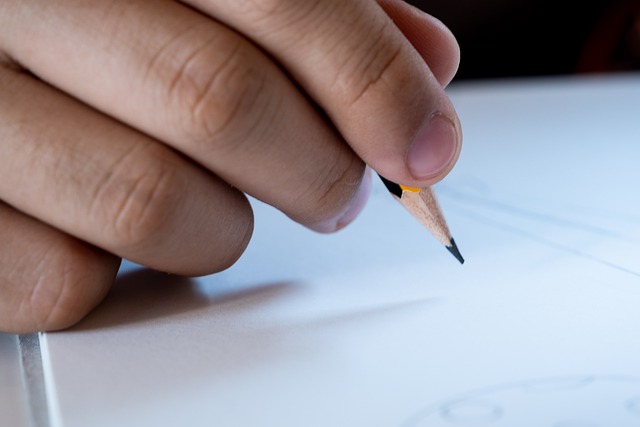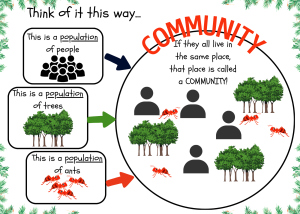Sound Familiar
“My students just don’t know how to take notes,” fumes one teacher (you??) to another about note-taking skills one afternoon in the teacher lounge.
“Notes? Why do we have to take notes? This is stupid!” her colleague mimics the outcry from some of her classes.
This first post begins the journey into note-taking skills. Later posts will focus on some methods and alternatives. Note-taking is a craft that should be of particular interest to middle school teachers.
Why? Most middle school students don’t really understand the need for taking notes…or, its benefits. Nor do they see its benefit as they move from Middle into High school and, possibly, college.
Truthfully, for myself, I didn’t know how to take notes even in the early years of undergraduate school.
Our Aim
Through this series, we hope to answer a few questions such as:
- Why do students need to take notes? And, why you should teach them?
- What is the best way to take notes?
- Are there different ways to take notes?
So, grab your favorite notebook and a trusty pen, and let’s see how to help your students succeed. In part one we will dive into the whys, what fors, and benefits. In succeeding posts, we’ll look at note-taking alternatives.
Note-Taking Skills: Do they even know how?
As a budding scholar ( meaning middle school student), one skill that’s absolutely essential for academic success is effective note-taking.
But, do middle school students even know how to take good notes?
Have they ever been taught this craft? Or, even why good note-taking is beneficial to their academic success?
It is up to you to help guide/teach your students not only the benefit of taking good notes but also what and what not to do in those regards.
What Note-Taking Is and Is Not Meant to Be
Taking meaningful notes isn’t just about jotting down random facts or every word. No, good note-taking is about students creating a personal roadmap to help steer them on their way through the complex world of lectures, textbooks, or e-texts. Yet, how can they succeed on the path to academic success if they have never been taught?
From the files of Mr. K’s class
From personal experience, dutiful students thought they were taking good notes by writing every single thing down. Others, those who didn’t really care, scribbled a few words, drew pictures, or left their papers nearly empty.
After the unit assessment, it inevitably happened that one or more students would ask (concerning their notes and work), “Can we throw these away now?” Argh!
That was when I began having students file their notes in one of my two filing cabinets. At the end of the semester, they had all of their notes for studying. It was a start at least.
That was also instrumental in researching and teaching my charge how-to and the value of good note-taking.
10 reasons for taking notes
Taking good notes in school is a crucial skill that can benefit students in various ways. Here are 10 reasons why students should focus on effective note-taking:
1. Enhances Understanding:
Taking notes forces students to actively engage with the material, which improves their understanding of the subject matter.
2. Retains Information:
The act of writing down information helps reinforce the retention of important concepts. That, in turn, makes it easier for students to remember and recall information later.
3. Organizes Thoughts:
Note-taking helps students organize their thoughts and ideas. This creates a structured framework that aids in helping them make sense of complex topics.
4. Encourages Review:
Well-organized notes serve as a valuable resource during exam preparation. Students can quickly review key points and refresh their memory on important topics.
5. Promotes Active Learning:
Actively participating in the note-taking process promotes active learning, encouraging students to think critically about the material and ask questions for clarification.
6. Improves Listening Skills:
Effective note-taking requires students to listen attentively during lectures, improving their overall listening skills and ability to pull out important information.
7. Reference for Assignments:
Notes serve as a handy reference when working on related assignments and projects. This ensures that they have accurate and relevant information at their fingertips.
8. Encourages Synthesis:
Note-taking encourages students to make connections by condensing information into key points. The benefit is helping them grasp the overarching themes and links within a subject.
9. Prepares for Exams and Assessments:
Comprehensive notes act as a valuable study tool for exams and assessments. Thus, allowing students to focus on reviewing important concepts rather than sifting through texts or other information sources.
10. Develops Transferable Skills:
Effective note-taking skills, such as organization, critical thinking, and summarization, are transferable to many aspects of life and future careers.
In summary, taking good notes is not just about recording information; it’s an active process that enhances learning, promotes understanding, and prepares students for success in their academic and professional journeys.
Active Listening: The Foundation of Great Notes
Before the pen hits the paper, it’s essential that students focus on being active listeners. (That’s not an easy task for many middle schoolers!) They must pay attention to the subtle hints in the lecture, identify the main ideas, and jot down key points.
As a teacher, it falls on your shoulders to teach them the necessity of good note-taking skills. So that, When they actively engage with the material, their notes will naturally become more meaningful. This is what you want and what they need.
From personal experience, most students had little idea of the value of notes nor different methods for doing this…other than writing down every single word, taking the sketchiest of notes, or not taking notes at all. The result was a lot of frustration all the way around. In addition, their notes didn’t seem to help with improved comprehension or better scores on assessments.
Wrap Up
In conclusion, the journey through effective note-taking is a skill crucial for students, especially those navigating the challenging transition from middle school to high school and beyond. As educators, we must recognize that many students may not have grasped the importance of note-taking.
This series aims to explore the reasons behind students’ struggles with note-taking, the significance of developing note-taking skills, and practical approaches to mastering it. By emphasizing ten key reasons for taking notes, ranging from enhancing understanding to developing transferable skills, we underscore the many benefits of this essential piece of academic life.
The path to successful note-taking involves not only understanding the “whys” and “what for” but also actively promoting active listening as the foundation for meaningful note-taking. Through this series, we aspire to empower educators to guide students in creating their own personal roadmaps to academic success.







